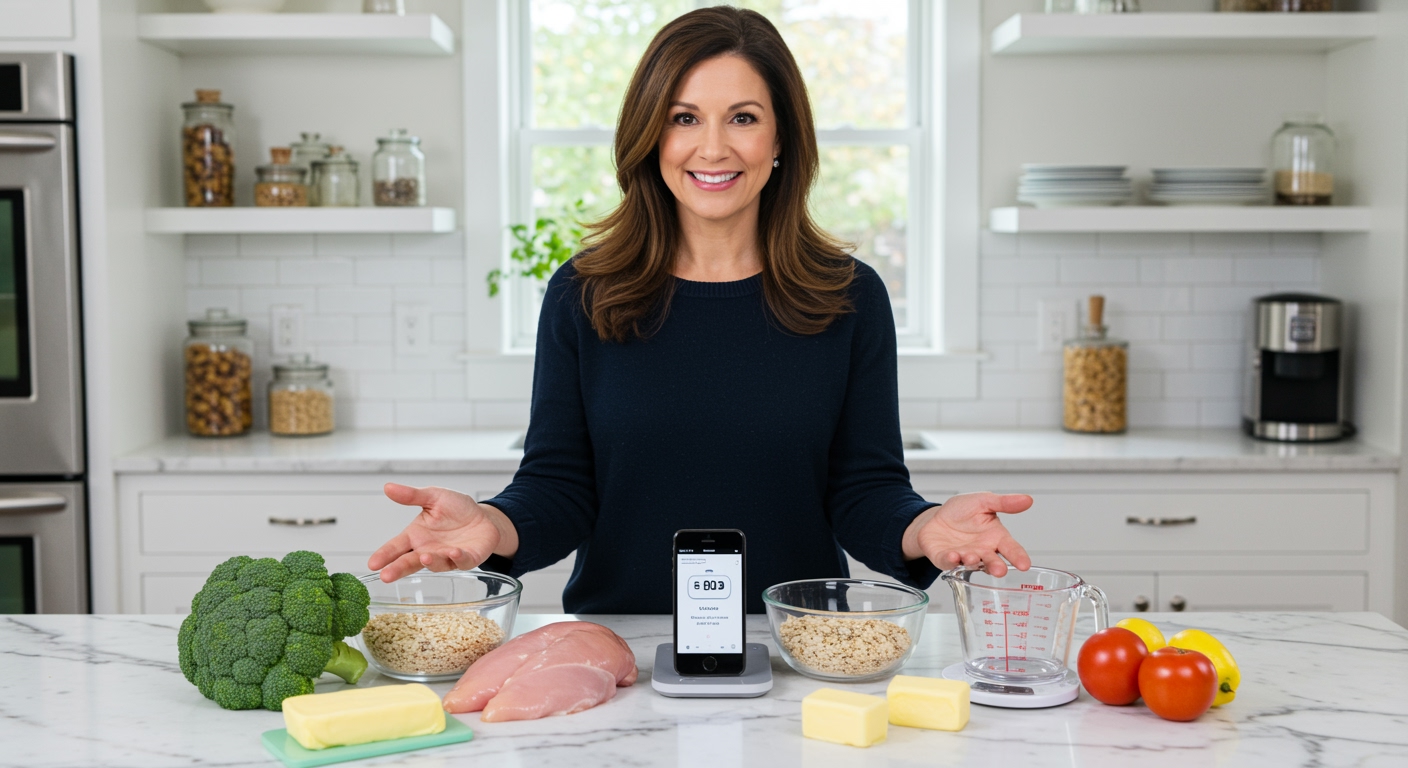✪ Key Highlight: New research shows people lose twice as much weight eating minimally processed foods versus counting calories.
Introduction
Millions of people struggle with calorie counting apps and food scales every single day.
A groundbreaking study published in Nature Medicine reveals that food quality beats calorie counting for weight loss success.
Hi, I’m Abdur, your nutrition coach and today I’m going to analyze this revolutionary research that challenges everything we thought we knew about weight loss.
What Did This Study Actually Test?
Researchers divided 55 adults into two carefully controlled groups for this crossover study.
Both groups received nutritionally matched diets with identical amounts of fat, salt, sugar, and total calories.
The first group started with minimally processed foods like raw meat, fresh vegetables, steel-cut oats, and real butter for four weeks.
The second group began with a diet high in ultra-processed foods during the same period.
After four weeks, both groups switched to the opposite diet for another four weeks.
This crossover design allowed researchers to compare the effects of food processing directly while keeping all other nutritional factors exactly the same.
Lead author Samuel Dicken explained that this approach helped isolate the impact of food processing itself, separate from nutrients like fat, salt, and sugar.
✪ Fact: Ultra-processed foods make up over 60% of calories in the average American diet today.
Why Did Minimally Processed Foods Win?
After eight weeks, both groups lost weight but the results were dramatically different.
People eating minimally processed foods lost nearly twice as much weight as those on ultra-processed diets.
Most importantly, the minimally processed group lost weight from fat and water rather than muscle tissue.
This type of weight loss improves overall body composition and represents much healthier changes than simple scale numbers.
Ultra-processed foods contain industrial additives, preservatives, and ingredients you would never find in a typical home kitchen.
These foods are engineered to be hyperpalatable, meaning they trigger overconsumption even when people try to control portions.
Minimally processed foods require more energy to digest and metabolize, creating a natural metabolic advantage for weight loss.
✪ Pro Tip: Choose foods with five ingredients or fewer to naturally avoid ultra-processed options.
What Makes Ultra-Processed Foods So Problematic?
Ultra-processed foods undergo extensive industrial manufacturing that strips away natural nutrients and fiber.
Food companies add artificial flavors, colors, emulsifiers, and preservatives to create shelf-stable products.
These additives can disrupt your gut microbiome, which plays a crucial role in metabolism and weight regulation.
Ultra-processed foods also lack the natural satiety signals that help your brain recognize when you have eaten enough.
The industrial processing breaks down food structure, making calories more easily absorbed and stored as fat.
Co-author Professor Chris van Tulleken pointed out that our global food system actively encourages diet-related poor health and obesity.
Multinational food companies spend billions creating unhealthy food environments that make processed options more convenient and accessible than whole foods.
✪ Note: Reading ingredient lists takes just seconds but can save you years of health problems.
How Can You Apply These Findings Today?
Start by swapping ultra-processed foods for minimally processed alternatives in your daily meals.
Choose fresh vegetables instead of frozen meals, whole grains instead of refined cereals, and real meat instead of processed deli meats.
Cook more meals at home using simple ingredients with recognizable names that you could find in nature.
This approach eliminates the stress and obsession that comes with counting every calorie throughout the day.
Focus on eating until you feel satisfied rather than hitting specific calorie targets that may not match your body’s actual needs.
The study shows that food quality matters more than quantity when it comes to sustainable weight loss.
These habits are much easier to maintain long-term compared to the mental exhaustion of tracking every bite of food.
✪ Pro Tip: Meal prep with whole ingredients once weekly to make healthy choices as convenient as processed options.
The Bottom Line
This research proves that you can lose more weight by focusing on food quality instead of obsessing over calorie numbers.
Your fork is more powerful than your calculator when it comes to lasting weight loss success.
What questions do you have about switching from calorie counting to whole food eating, and which processed foods are you ready to swap out first?
References
At NutritionCrown, we use quality and credible sources to ensure our content is accurate and trustworthy. Below are the sources referenced in creating this article:
- Advisory: Intermittent Fasting Research Updates
- Healthline: 7 Ways to Lose Weight Without Counting Calories
- CBS News: Intermittent Fasting vs Calorie Restriction Study
- Harvard Health: Stop Counting Calories
- Zoe: Why Calorie Counting Doesn’t Work





